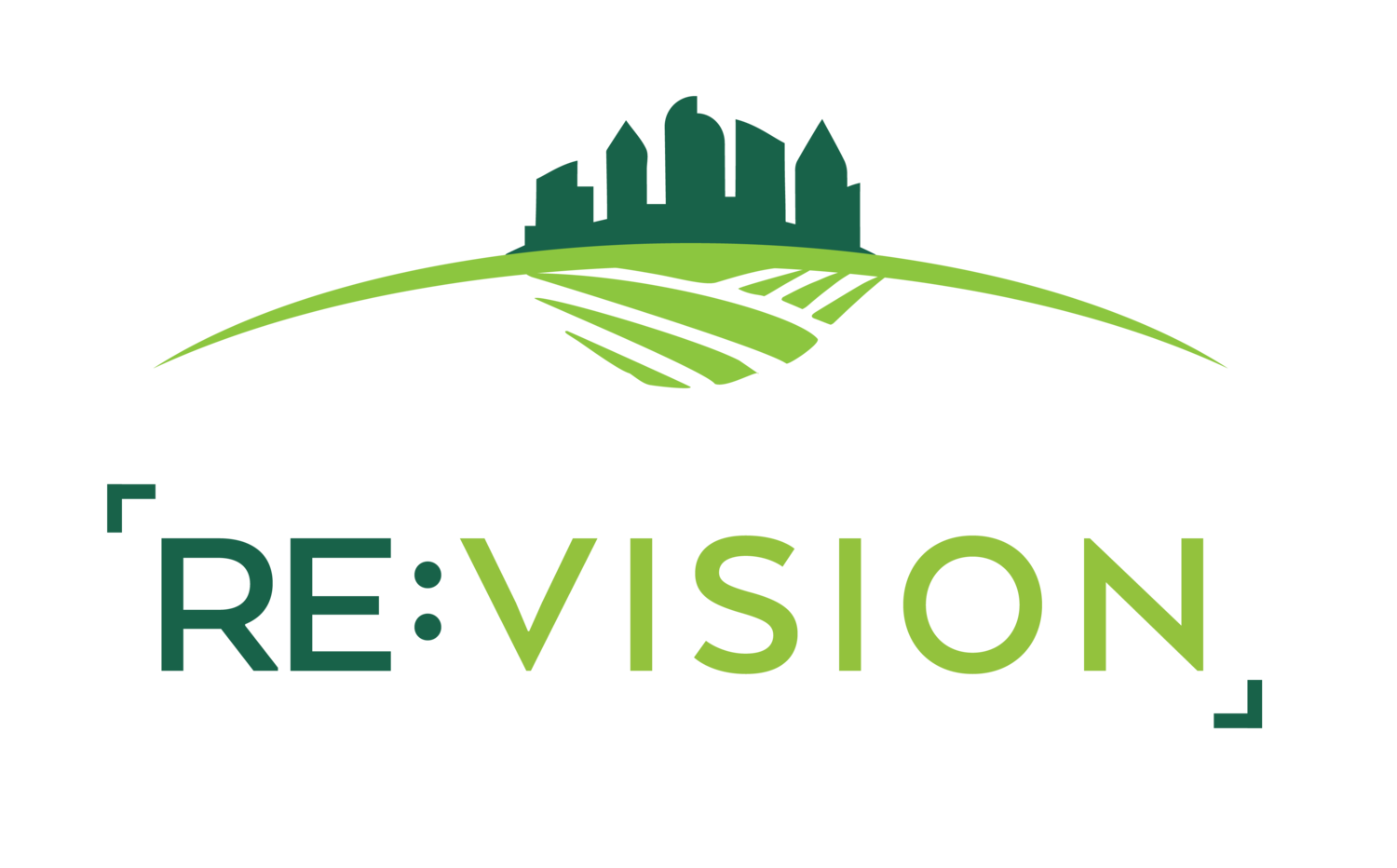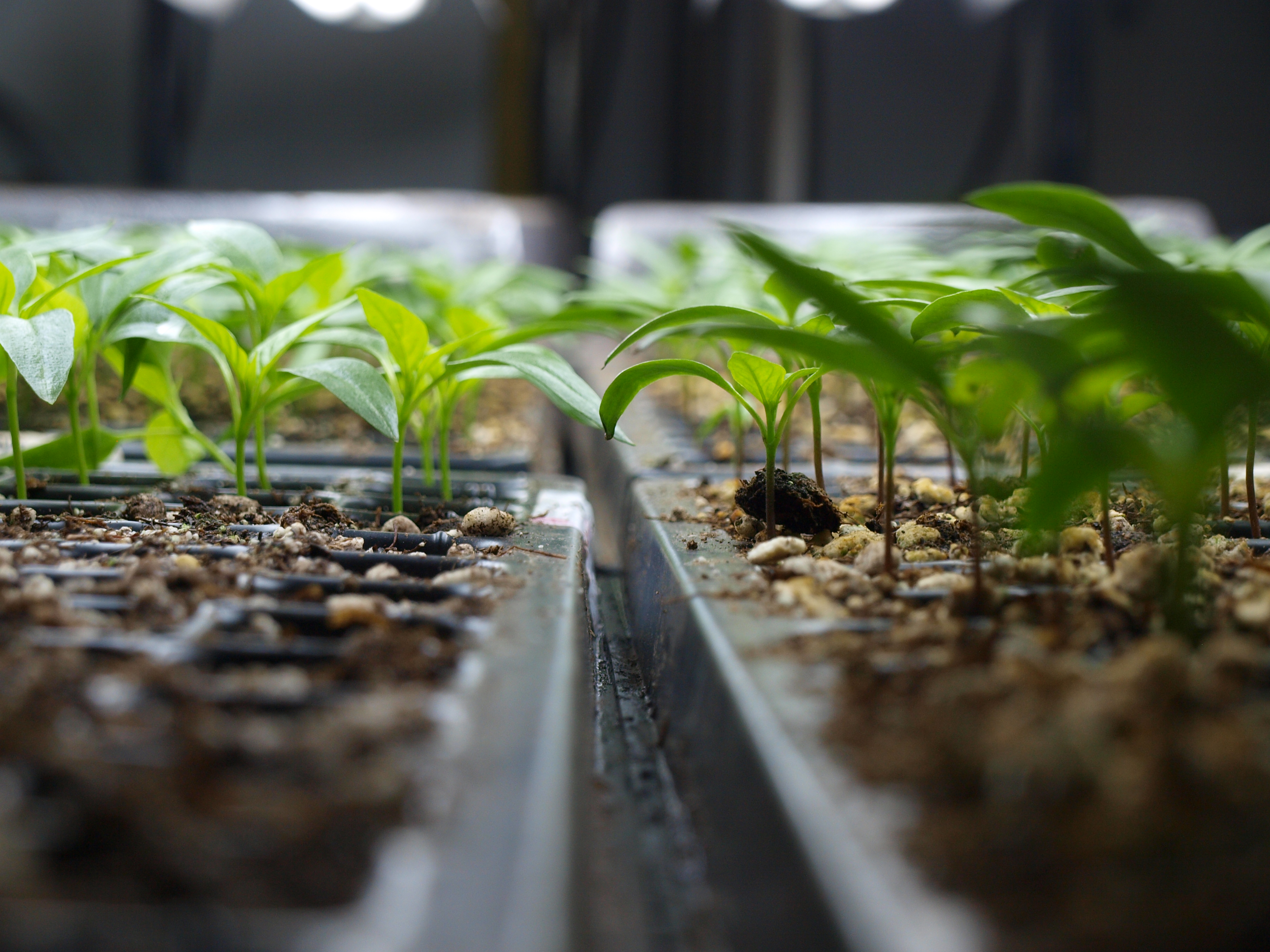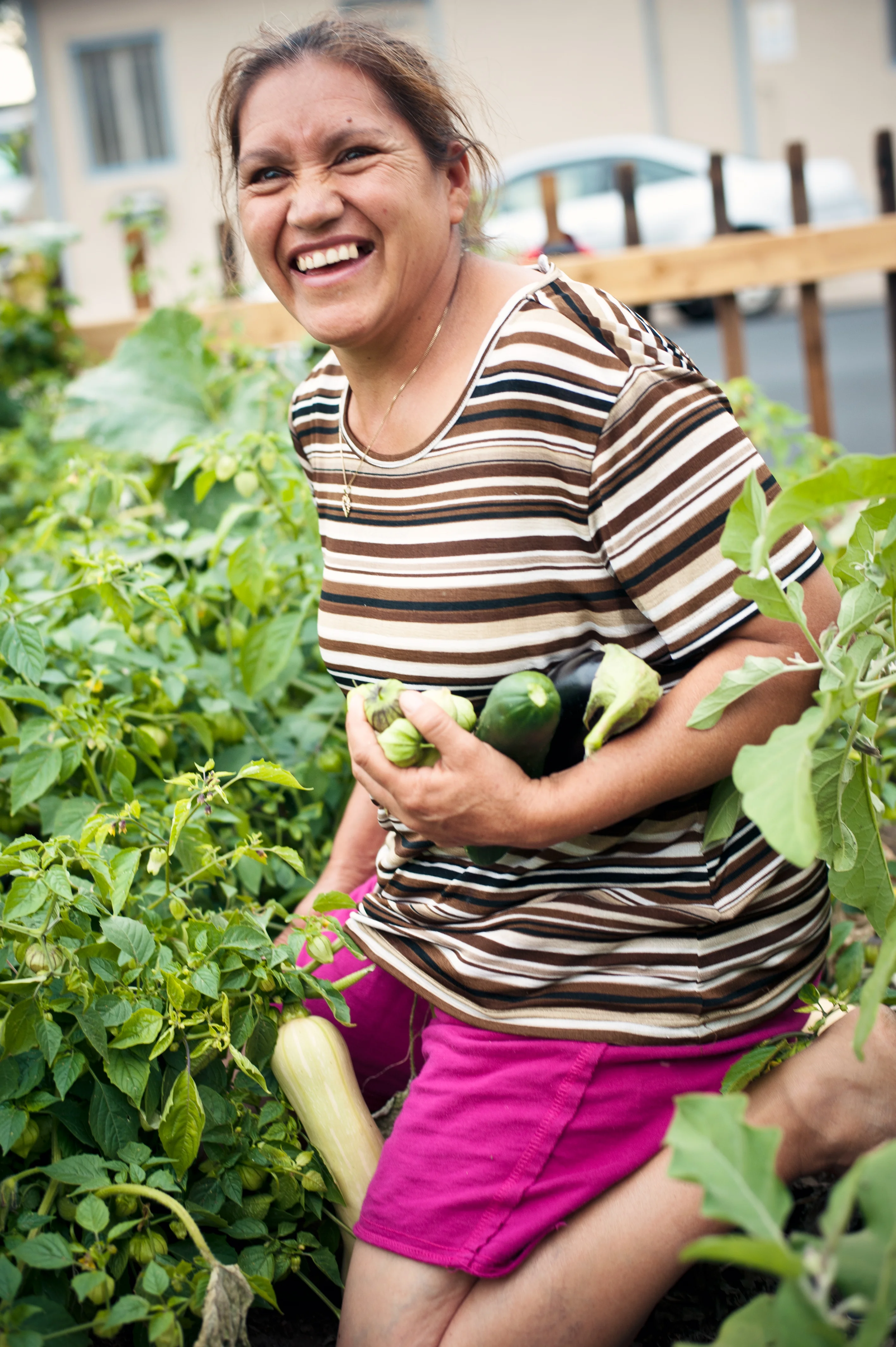
Re:Write
STORIES FROM THE FIELD, PROMOTORA RECIPES, AND CO-OP DEVELOPMENT LESSONS (PLUS SOME POLITICS AND HUMOR, TOO)
Community-grown Seedlings
During the dark, cold days of winter, we warm up by reading through stacks of seed catalogues and dreaming of the hot summer days ahead! In order to supply our 200 backyard gardens and 2 urban farms, we have to grow approximately 10,000+ seedlings – no small task!
We just finished our greenhouse at Kepner Middle School, so since we needed to start our seedlings before construction was complete, the little guys have been cozy indoors under grow lights. The back half of our office has been converted into a tropical greenhouse (on cold days, you can find staff members warming up over the plants instead of working at their desk!)
This year we are excited to announce our first annual plant and seed sale! Mark your calendars now for Saturday, April 27th and May 4th and 11th – just in time for Mother’s Day. Not only do we use certified organic seed and growing mediums, guaranteeing quality plants that you can trust, but proceeds from our plant sale will support backyard gardens for low-income families!In addition to seeds and seedling transplants, we’ll be designing and selling custom drip irrigation kits for your garden (bring a detailed, dimensioned drawing of your garden along with the distance to the water source with you), and we’ll have Maxfield’s Organics soil amendment products for sale! Make us your one-stop shop for gardening this year.
Cultivating Community, Planting Seeds
If you’ve followed our blog, you know that we have been starting seedlings in preparation for our upcoming gardening and farming season. This season is our biggest year yet as we plan on reaching 200 backyard gardens!
Only 4 short years ago, we launched Re:farm Denver and planted our first gardens – 7 of them to be exact. The success of our model is based on two key principles: (1) we support families to grow their own food by providing resources and ongoing technical support, and (2) we hire and train residents from the community to become promotoras and empower them to drive the program.
As we speak, promotoras are meeting one-on-one with families to explain the program and help them plan their gardens – what they want to eat, healthiest choices, and what is best suitable for their space. After promotoras complete a site visit and make a garden plan, we bring in nutrient-rich compost to feed and improve soil quality. We then help each family install a water efficient drip-irrigation system controlled with an automatic timer. Later this spring, promotoras will deliver plants and seeds and help each family plant their garden!
New this year, Revision is excited to announce a limited number of gardens for sale! We are exploring the concept of a “one-for-one” model where a family that can afford to pay for a garden will help offset the cost of a low-income family’s garden.
Please check back for more information, or contact us here.
Transforming Families, Transforming Communities
In 2009, we began teaching families how to grow food in their own backyard in order to feed their family healthy, fresh, organic food. For most of these families, this is the only way that they can afford to eat healthy, the only way they can feed their children organic produce. We started in the Westwood neighborhood, nestled in Southwest Denver and the home to most of our family gardeners. Westwood is food desert, meaning the residents have no grocery store in their community. This, coupled with their modest economic resources, translates into an unhealthy diet. A 2009 study of the neighborhood found that 76% of adults were either overweight or obese.
From seven families in 2009, to 87 in 2011, our program more than doubled every single year. In return for providing families with the resources and technical support to feed their family, we ask that they pay the gift forward and refer another family to join the program.
In 2012 we helped 168 families learn how to grow their own food and feed their family. Over 90 percent of these families live on less that $15,000 a year – which is abject poverty. But because of our program, over 16,000 pounds of organic produce was grown this year in a community that has zero healthy food options.
But these numbers alone do not tell the real impact that our work has. Based upon data collected from 160 families this year:
- 93% said that they eat more fruits and vegetables
- 94% eat fresher food/less packaged food
- 96% cook at home more
- 84% eat more organic food
- 84% eat less fast food
This data shows that Revision’s model is having an immediate and measurable impact on a community that has the highest rate of obesity in children under the age of 18, in a community where the average household income is 50% less than the average Denver household, and in a neighborhood where this is no healthy fresh food.
The success of this program has been rapid. After 4 short years, we have built a critical foundation for a community to change. We have cultivated leaders from within, offering them a better life and new opportunities. We have helped guide a community to develop their own food system – through the production and distribution of healthy food, and through the education and job creation that encompass it. We are not just growing gardens. We’re growing community. We’re not just cultivating food. We’re cultivating potential.
And we're not content to let it rest at potential. Starting in 2013, Revision will coalesce all the momentum in the neighborhood so far - over 200 gardening families, 2 urban farms, the beginnings of a meaningful food distribution framework, and ever-deepening education - into a community-owned cooperative. This would be a separate entity, owned, led, staffed, and managed by community residents themselves. This cooperative, over a transition period of a few years, will provide economic opportunity, enhance the existing community resources, facilitate the production and distribution of food by, and for, the community, and increase the access to healthy food in a food desert. In 2013 Revision will begin by holding community meetings, recruiting and training a co-op board of directors comprised mostly of residents, and bringing together experts in cooperative development to aid in establishing a sustainable business plan and operating framework.
We'll keep you updated on the progress of the cooperative development throughout the year on this blog, so stay tuned!



